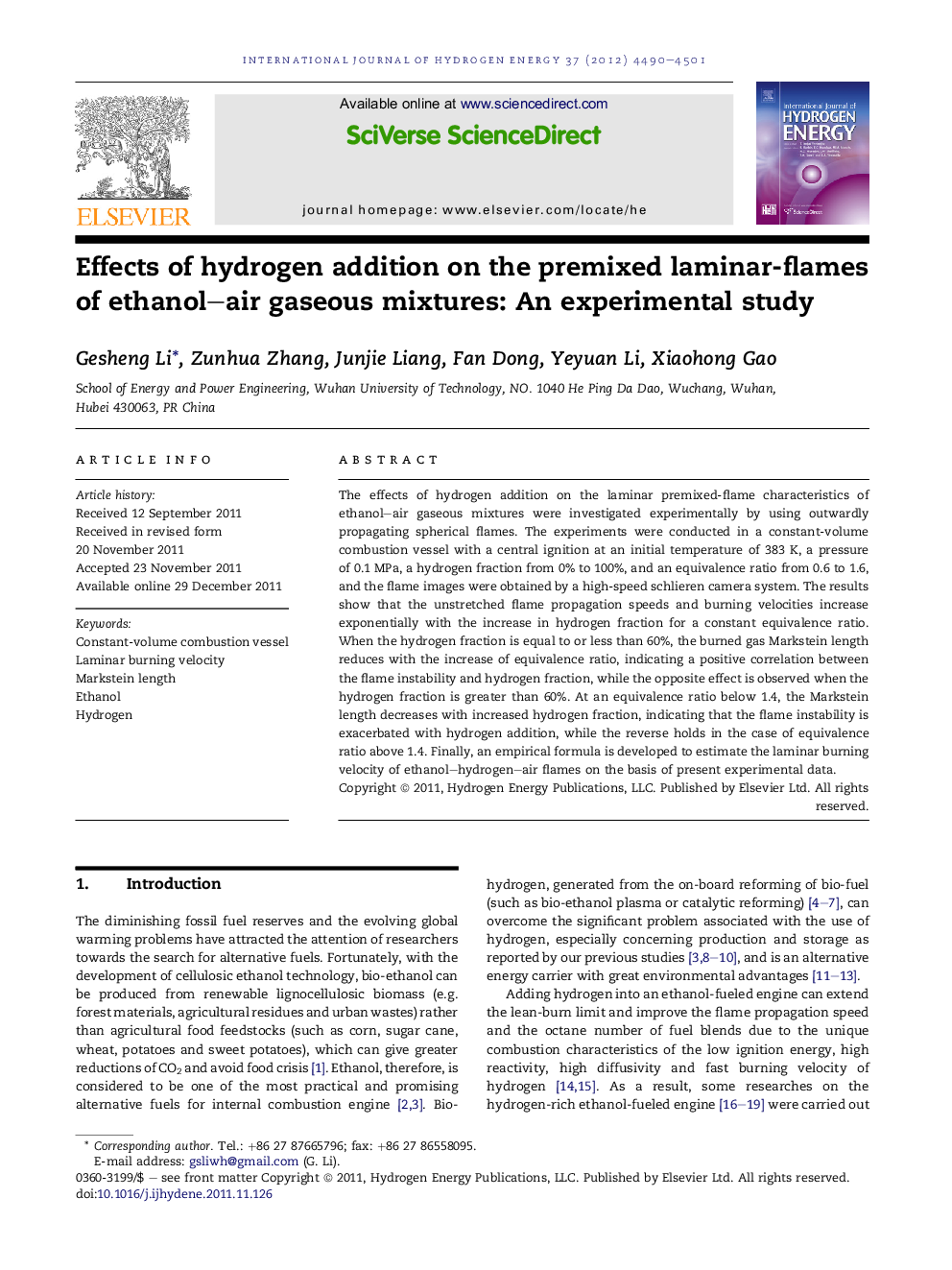| Article ID | Journal | Published Year | Pages | File Type |
|---|---|---|---|---|
| 1275506 | International Journal of Hydrogen Energy | 2012 | 12 Pages |
The effects of hydrogen addition on the laminar premixed-flame characteristics of ethanol–air gaseous mixtures were investigated experimentally by using outwardly propagating spherical flames. The experiments were conducted in a constant-volume combustion vessel with a central ignition at an initial temperature of 383 K, a pressure of 0.1 MPa, a hydrogen fraction from 0% to 100%, and an equivalence ratio from 0.6 to 1.6, and the flame images were obtained by a high-speed schlieren camera system. The results show that the unstretched flame propagation speeds and burning velocities increase exponentially with the increase in hydrogen fraction for a constant equivalence ratio. When the hydrogen fraction is equal to or less than 60%, the burned gas Markstein length reduces with the increase of equivalence ratio, indicating a positive correlation between the flame instability and hydrogen fraction, while the opposite effect is observed when the hydrogen fraction is greater than 60%. At an equivalence ratio below 1.4, the Markstein length decreases with increased hydrogen fraction, indicating that the flame instability is exacerbated with hydrogen addition, while the reverse holds in the case of equivalence ratio above 1.4. Finally, an empirical formula is developed to estimate the laminar burning velocity of ethanol–hydrogen–air flames on the basis of present experimental data.
Graphical abstractFigure optionsDownload full-size imageDownload as PowerPoint slideHighlights► We investigate the premixed laminar flame of ethanol–hydrogen–air mixtures. ► Flame speed increases exponentially with increasing hydrogen fraction. ► Markstein length decreases with equivalence ratio for low hydrogen fraction. ► Increasing hydrogen addition will decrease Markstein length for lean burning. ► An empirical formula for calculating the flame speed is proposed.
